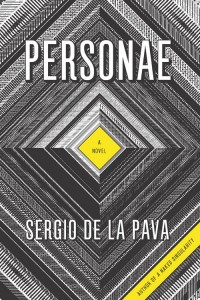ALL THE TEXTS I’D SEND YOU IF YOU WANTED TO GO TO A SERGIO DE LA PAVA TALK WITH ME ON DEAD RUSSIANS
…but then got ran over by a bus and died. No im totally kidding! but you really did get the flu and couldn’t join me.
The talk was at Housing Works, and it included two other speakers: David Gordon and Michael Kunichika.Your expectations were unclear: talk about Russian writers who, though they left us long ago, remain potent presences for readers and writers today. From Dostoevsky and Tolstoy to Vasily Grossman and Sigizmund Krzhizhanovsky, we’ll learn about obsession, madness, realism, fables, and more, in an event with all the drama and pathos (well, at least some of the drama and pathos) of the great Russian novels themselves.
Here are all the texts I would have sent you, in chronological order and without clarifying who said what, because color-coordinating via SMS goes a step too far:
truth-seeking urgency intrinsic in russian lit
antithesis to beckett & writers who focused extensively on beauty of language
falling in love w/ english language, less plot driven urgency
dostoevsky similar to conrad in terms of truth-seeking urgency
multivocality of dostoevsky
there is no right, just different truths
dostoevsky threw the best literary parties (metaphorically speaking, as a creator)
proust s parties were too long, and maybe the guests were wearing better clothes
abstract psychological curiosity in motives, including abnormalities–>russian approach
going in depth for big questions, characters not being introverted
serialization of lengthy works, such as ‘war & peace,’ adds towards creating a broader debate. they become part of the broader debates occurring during their time
some compare the creation of microcosms of russian lit to ‘the wire’
comparing to british office, where they look at the camera at moments of despair but the viewer cannot do anything to help // to embarrasing dostoevsky characters
nabokov disliked dostoevsky for his “bad writing”
dostoevsky had a v diff approach to writing from nabokov: almost got executed literally, then was told he had another five years
that is also why dostoevsky did not pursue inanimate writing, unlike tolstoy (?)
nabokov didn t like music!
neither did dostoevsky !! (probably diff reasons)
saul bellow s ‘dean of december’–>similar urgency in truth-seeking (someone from the audience)
can reading a book be so vivid it appears like a different life?
if yes, it depends on willingness of writers to go to great lengths in creating characters who go too far, embarrass themselves/ are visceral
perhaps a key element that helps bring about the urgent truth-seeking: religion s role for the writers
religion, like their fiction, was trying to explain what goes on beyond the physical
nabokov s direct ancestor was dostoevsky s jailor. weird how he was not willing to cut him any slack, considering
dostoevsky was crowd-pleasing oriented bc he lived off writing
MONEY!!!
Tags: Chekhov, David Gordon, Dostoevsky, Housing Works, I love Russian writers, Leo Tolstoy, Michael Kunichika, Sergio de la Pava, sms, vladimir nabokov


‘truth-seeking urgency’ good 4 dosto & tolstoy; overcoat diff kind of disclosure? or do you mean urgency of *author*, which sounds near-tautological
‘beauty of language’ wd be 4 russian-lang reader 2 decide? eg bakhtin on dosto: subtle polyphony. or my *guess* abt chekhov & even some w&p seems maybe beautiful
what do you mean “no right”? boring/careless/merely sensational/trifling writing are wrong truths
dosto’s emo-garish ppl/parties: fun? …in a way – ha ha
‘big questions’ explicit in dosto & tolstoy. there but embedded subtly in gogol, lapdog lady
yes to serialization entering/precipitating broad debate, best eg dickens
‘inanimate writing’?
‘russian writer of ‘i” – bellow’s great ambition starting w augie march
reading *better* be different life
urgent truth-seeking is condition for possibility of religion, not vice versa
whoever writes not for $ is a ‘blockhead’ – hello internet, samuel johnson
–
edit: constitutively implicit 4 ’embedded’
dickens was actually mentioned in re: serialization
“no right”–>no ultimate/ absolute truth, duh
i was a little confused w/ “inanimate writing” too. i think the example was from tolstoy